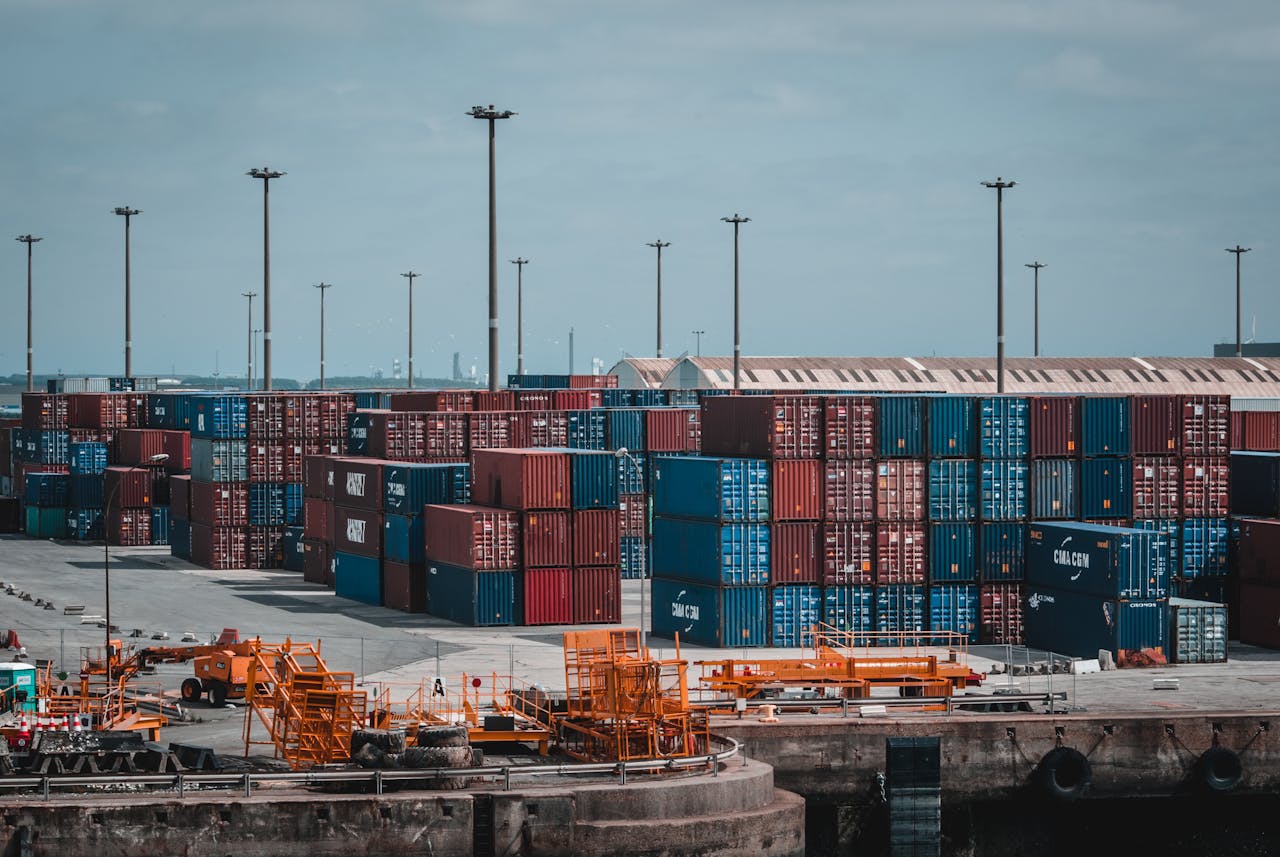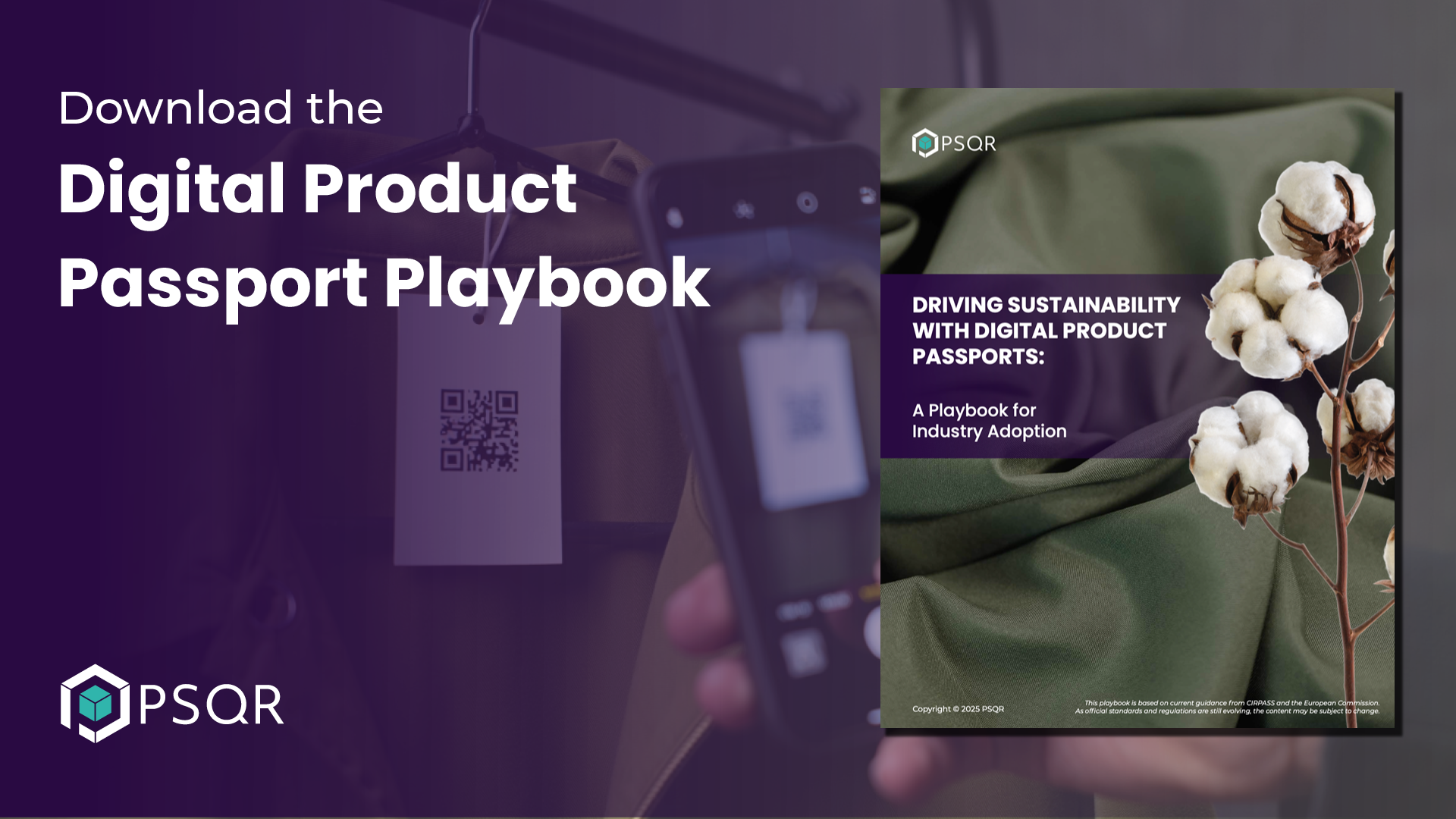In today’s interconnected and complex global marketplace, supply chain management is no longer just about moving goods from point A to point B. It’s about creating a transparent, efficient, and sustainable system that builds trust, meets regulatory requirements, and delivers value to all stakeholders.
Now more than ever, companies are focusing on improving supply chain resilience and product information management.
In this article, we have highlighted the main initiatives and expectations for supply chain management in 2025. Moreover, you can read why we believe traceability solutions will be at the forefront of these movements.
Here are 5 prominent changes happening in the supply chain world this year:
1. Enhanced Regulatory Compliance
Industries are currently facing various regulations that mandate comprehensive traceability. For instance, the U.S. Food and Drug Administration’s Food Traceability Final Rule requires specific recordkeeping for certain foods by January 2026, aiming to swiftly identify and remove potentially contaminated items from the market.
Similarly, the Tobacco Products Directive, a regulation from 2019, had its second phase implementation in 2024 requiring all small and medium-sized businesses to apply a unique identifier to the unit packets of tobacco products to enable tracking and tracing through the supply chain down to the retail level.
Finally, the Digital Product Passport regulation (a part of the European Green Deal initiative), will affect several industries producing and importing their products into the European Union, and will likely require products to have:
- Unique product identifier (UID)
- Product manufacturing information
- How to use information
- Recycling information
This information should be carried on an RFID or a QR code.
Enhanced regulatory compliance will significantly impact supply chain management by driving greater transparency, accountability, and efficiency. Companies will need to adopt advanced tracking and reporting systems to meet stricter standards, ensuring that materials and processes align with legal and ethical requirements. This can reduce risks, such as non-compliance penalties or reputational damage while fostering stakeholder trust.
Additionally, compliance efforts often uncover inefficiencies, leading to streamlined operations and more sustainable practices.
A list of current and upcoming regulations
European Union
- TPD – Tobacco Products Directive (2019)
- MDR – Medical Device Regulative (2024)
- EUDR – Deforestation Regulation (2023-2024)
- CSRD – Corporate Sustainability Reporting Directive
- Corporate Sustainability Due Diligence Directive (2022)
- DPP – EU Battery Regulation (2023 – 2027) – Textiles, Electronics, Plastics etc.
Europe
- France AGEC et Climat & Resilience
- Germany’s Supply Chain Due Diligence Act
- Dutch Child Labor Due Diligence Act
- UK and Australia’s Modern Slavery Acts
- Norway’s Transparency Law (2021)
- Swiss Child Labor Due Diligence Obligations
United States of America
- Uyghur Forced Labor Prevention Act (UFLPA)
- California Transparency in Supply Chains Act
- New York Fashion Act
- Canada Forced Labour and Child Labour in Supply Chains Act
- Food Safety Modernization Act (FSMA 204)
- The Drug Supply Chain Security Act (DSCSA)
Middle East
- Tobacco, Alcohol, Soft drinks, Pharmaceuticals, etc.
Asia, South America, Africa
- Dairy, Beer, Hard alcohol, Food, Pharmaceuticals, Washing Detergents, etc.
2. Adoption of Digital Product Passports (DPPs)
As mentioned before, the European Union’s Ecodesign for Sustainable Products Regulation (ESPR) is introducing Digital Product Passports.
These passports will provide detailed information about a product’s materials, origins, and environmental impact, enhancing transparency and supporting circular economy initiatives.
The Digital Product Passport regulation will affect a number of industries, including textiles, batteries, electronic devices, construction materials, plastics, chemicals, etc.
In 2025, managing supply chains will increasingly revolve around integrating Digital Product Passports (DPPs) to meet regulatory demands and consumer expectations. Supply chain managers will need robust systems to capture, store, and share product data across all stages, from raw materials to end-of-life recycling.
Traceability will play a pivotal role in ensuring the accuracy and reliability of this data, enabling businesses to track products in real time and verify compliance with DPP requirements.
3. Integration of Advanced Technologies
Advanced traceability solutions are transforming supply chain management by offering precise and reliable tools for monitoring and data collection.
IoT technologies, such as RFID tags and GPS trackers, provide real-time visibility into product location, condition, and movement, ensuring a clear picture of every stage in the supply chain. These systems capture and store critical data, enabling comprehensive analysis to identify inefficiencies, predict disruptions, and support data-driven decision-making.
With end-to-end traceability, companies can verify product authenticity, ensure compliance with regulatory requirements, and enhance trust among stakeholders, paving the way for more transparent and efficient supply chains.
PSQR provides state-of-the-art traceability solutions designed to meet these needs, delivering scalable and reliable systems that enable businesses to achieve complete supply chain visibility.
4. Improved Risk Prediction and Management
With the increasing complexity of global supply chains, there’s a heightened focus on predicting and managing risks.
In this regard, traceability solutions also stand out as valuable partners to companies looking to improve their supply chain management.
By providing real-time visibility into the movement and condition of goods, traceability solutions enable businesses to identify potential vulnerabilities early, such as delays, disruptions, or quality issues. Comprehensive data collection and analysis allow supply chain managers to detect patterns, predict future risks, and respond proactively.
Enhanced traceability allows companies to identify potential disruptions or compliance issues early, enabling proactive measures to mitigate risks.
5. Strengthened Supplier Collaboration
Supply chain management in 2025 will increasingly rely on strengthened supplier collaboration to meet the growing demands for transparency, efficiency, compliance and sustainability.
Implementing traceability will, too, require close partnerships between all supply chain participants, as it depends on accurate and consistent data sharing at every stage – from raw material suppliers to retail.
Suppliers will need to align on standards for data collection, such as using IoT devices or standardized labeling, and ensure timely data transfer through interoperable systems.
In turn, traceability will enhance collaboration by fostering trust, as it provides all stakeholders with a shared view of the product journey, enabling better communication and coordination. By creating a transparent and accountable network, traceability will not only facilitate compliance and risk management but also strengthen long-term partnerships across the supply chain.
How PSQR Empowers Supply Chain Management
PSQR specializes in scalable, interoperable and modular track and trace solutions that enable businesses to achieve comprehensive supply chain visibility.
Here’s how our technology drives success:
Scalable and Robust Technologies
Our software solutions are designed to handle immense volumes of supply chain data, ensuring reliability even in the most data-intensive environments. With the ability to store, process, and analyze millions of events daily, our system empowers companies to manage global supply chains with confidence.
Enhanced Data Operability
PSQR’s solutions are EPCIS-based, adhering to global standards for electronic product code information services. This ensures seamless integration across industries and geographies, enabling collaboration with diverse partners and stakeholders.
Real-Time Product Tracking
With PSQR, businesses can trace products throughout their entire journey, from raw material sourcing to final delivery. Real-time insights provide the information needed to verify product authenticity, ensure compliance, and build consumer trust.
Advanced Analytics for Informed Decisions
Our platform leverages cutting-edge analytics to help companies identify inefficiencies, predict disruptions, and optimize supply chain operations. This data-driven approach ensures informed decision-making and continuous improvement.
At PSQR, we believe in collaboration and creating solutions that will attend to customer’s specific needs. Our solutions are not just tools; they are enablers of partnerships across the supply chain. By fostering transparency and trust, we help businesses work together to achieve shared goals and improve supply chain management.
Whether you’re aiming to enhance efficiency, meet compliance requirements, or embrace sustainability, PSQR is your trusted partner in supply chain innovation. If you’d like to learn more about our products and services, please get in touch with our team of experts.





